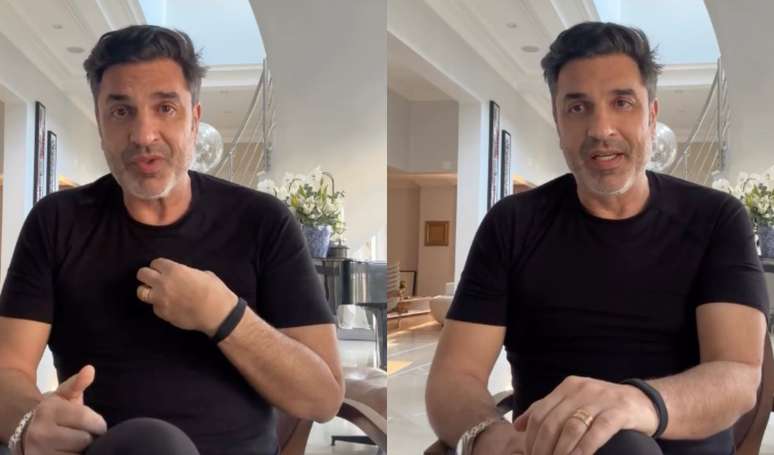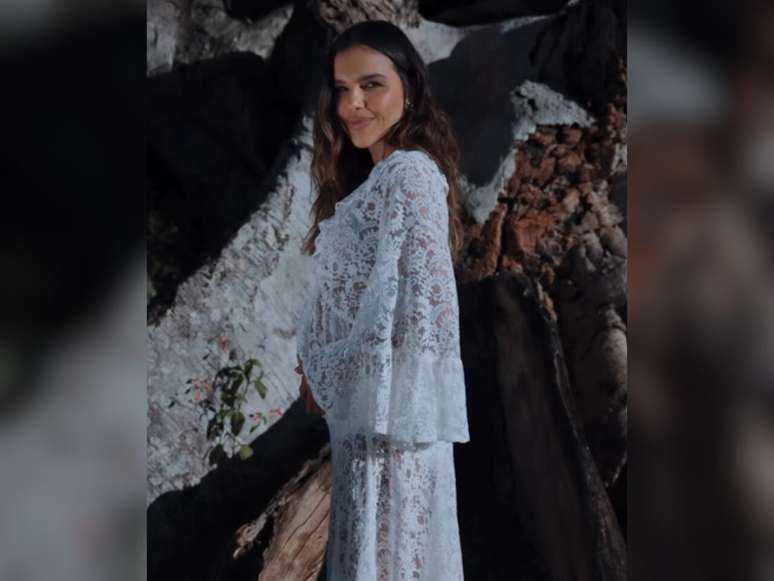Dominic West and Elizabeth Debicki had no illusions about the expectations and challenges they would face as the last incarnations of Prince Charles and Princess Diana in “The Crown”.
After all, their predecessors in the roles, Josh O’Connor and Emma Corrin, won both a Golden Globe and an Emmy for their performances in Season 4. chapter in the story of Charles and Diana: the painfully public implosion of their royal marriage.
The fifth season of “The Crown,” which arrives Wednesday (9) on Netflix, takes place during the height of their marital cheating in the early to mid-1990s, when Charles’s relationship with Camilla Parker Bowles and Diana’s revelation to Martin Bashir – which included her complaint that “there were three of us at this wedding”.
The show probably never recreated events, as imagined by creator Peter Morgan, for which many viewers already have strong feelings. And then, in early September, Queen Elizabeth II’s death further ignited the fire, as some of her Majesty’s high-profile subjects took aim at the series.
Former British Prime Minister John Major told the Daily Mail that people should boycott the show and that one scene in the new season where his character meets Charles, who is pushing for the Queen’s abdication, was “harmful fiction and mischievous “.
Judi Dench, writing for The Times of London, asked for a disclaimer to be added at the beginning of each episode, adding that Netflix “seems willing to blur the lines between historical accuracy and raw sensationalism.”
“It seems to annoy a lot of people,” West said with a nervous laugh in a recent New York Times video interview with Debicki. “If anyone thinks we don’t feel a huge responsibility, they are wrong,” Debicki added.
In the interview, West in England and Debicki in Spain talked about how to navigate public opinion, approach their characters with compassion and why what Diana wore matters. These are modified snippets of the conversation.
: You are very aware that everyone has a strong opinion on what happened and which side they are on. It’s a bit of a minefield.
: From an acting point of view, it’s a very interesting exercise because people bring their memory alive into this story. I’ve never participated in anything like this.
; It always amazes me how fast history moves, how fast changes happen. She upsets you. We were all deeply saddened and stopped filming. And then this beautiful line started forming, with all these people from different walks of life, ages and abilities walking past that coffin, and it completely destroyed me.
: I remember hearing what an incredible death, what an incredible effect, and what an incredible and unique world figure. But what’s also interesting is that much of Season 5 is about “Will Charles be King?” In the 90s, a lot of people said, “I don’t think he’s the right person.” Then it happened and it was amazing how quickly and instantly everyone accepted him as the new king – and unquestionably. It seemed that much of the turmoil we had wrought for Charles that he would fulfill his destiny had been fulfilled in those few days.
: I asked Peter and Netflix a few times last year: “What will happen when the queen dies?” And they said, “Virtually nothing.” I was amazed when she died that there was no “Oh no, oh God, we were horrible” feeling. What emphasized to me was the degree of respect with which the authors and everyone else received these stories and these figures. It was comforting that there was no need to reevaluate things.
: Yes. I think it reactivated a sense of purpose. I feel like there is, to be honest, a lot of sadness. A real sense of loss. Many people I spoke to were surprised at how deeply affected they were by this.
: Oh my God, I’ve been a real observer since they got married. I was obsessed with Diana. I am still. I must have been ten or 11. I remember planning with two friends to try going camping to see her – it’s really sad now to relate.
: My earliest memory of that time was, as I think many people my age, experiencing the funeral through the reaction of their parents. This is a distinct memory for me.

: I think it’s one of the benefits of dramatizing these events now. People say, “Why do we have to shake these things up again?” There was no prospect then. Divorce and even Diana’s death: it takes 25 years or whatever to process it. And it’s interesting what we think now and how we can be much more impartial in our view of this. There is the benefit of hindsight.
Charles is a rather controversial role in the way he is portrayed. I have been involved in the Prince’s Trust and I really admire the work he does on this; I didn’t want to harm him in any way. But I am increasingly convinced that this does not compromise this or anything that has to do with royalty.
: Josh was kind of a turtle, and he’s so effective. So I keep it. the way [Charles] touch your clothes and always play – I realized that touching is the only way you can continue to look immaculate. The voice was a kind of closed mouth, clenched teeth – in a sense, the psychology of someone who is very careful about what they say. And he always points, and I understand that it’s a really smart technique when walking through the crowd. It points to people and is able to make people feel like they have established a connection. So I really like to point.
: It was actually my favorite thing. Do you remember how many times in the scenes I asked you to stop pointing at things? [Risos]
We have a movement coach in “The Crown” and his job is to help us get into the physicalities that are attributed to these people. If you want to dig deeper, the research department can provide this huge amount of archival footage. I love looking at things really raw and uncut, where it’s just these weird little coils that last, like, 40 seconds, and it’s the two of them getting out of a car. There is a lot available, so I have looked at a lot of them. What can be said and what has not been said, and how it manifests itself in the bodies, is very interesting for the actors to work with.

: I don’t think it’s silly because it’s part of the character. It is fascinating what makes someone iconic, what makes their wardrobe iconic. Princess Diana was so iconic and so cool – the kind of pussy I could never be. He came to her in this sense: “I’ll create a separate narrative from the one I can talk about and I’ll do it with my clothes.”
: It’s not as difficult as you think. It comes, perhaps somewhat alarmingly, of course. [risos]
: I was expecting a pay raise, but … [risos]. This is simply wonderful “food” to me. The lines, the bloody, irritable pen. I was attached to your Accession Council. You saw why “The Crown” and the monarchy fascinated people so much. Who knew about the archers who came out defending the queen with bows and arrows? And all these extraordinarily mysterious people have shown up and practiced, it seems, every month for the past 200 years. Mad Hatter’s Tea Party. [risos]
If the British military is perhaps not what they were on the world stage, they are certainly world champions in ceremony, ritual and pageantry. We are still good for the theater.
through The New York Times
Featured Image: Disclosure / Netflix
The Crown post: Elizabeth Debicki and Dominic West talk about their roles as Diana and Charles first appeared on Digital Look.
Source: Olhar Digital
Emily Jhon is a product and service reviewer at Gossipify, known for her honest evaluations and thorough analysis. With a background in marketing and consumer research, she offers valuable insights to readers. She has been writing for Gossipify for several years and has a degree in Marketing and Consumer Research from the University of Oxford.


![Plus Belle La Vie ADHER: Mistral farewell to Samuel … which awaits you a week from June 14 to July 18, from July 18, 2025 to July 18, 2025 [SPOILERS] Plus Belle La Vie ADHER: Mistral farewell to Samuel … which awaits you a week from June 14 to July 18, from July 18, 2025 to July 18, 2025 [SPOILERS]](https://fr.web.img6.acsta.net/img/7b/07/7b078e62648522533356d00e1432dca3.jpg)

![Tomorrow belongs to us in advance: Delkut’s family in disorder .. which is waiting for you for a week [SPOILERS] Tomorrow belongs to us in advance: Delkut’s family in disorder .. which is waiting for you for a week [SPOILERS]](https://fr.web.img5.acsta.net/img/0b/7f/0b7ffc0c40cf57fa2d77c6bf4e0c9c8c.jpg)


